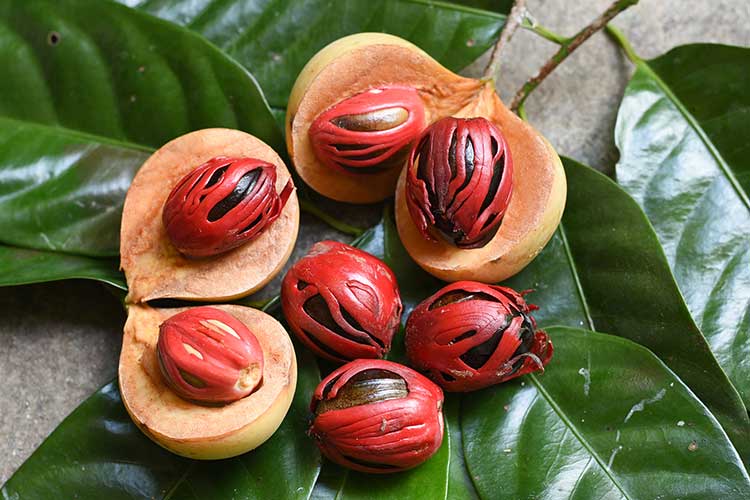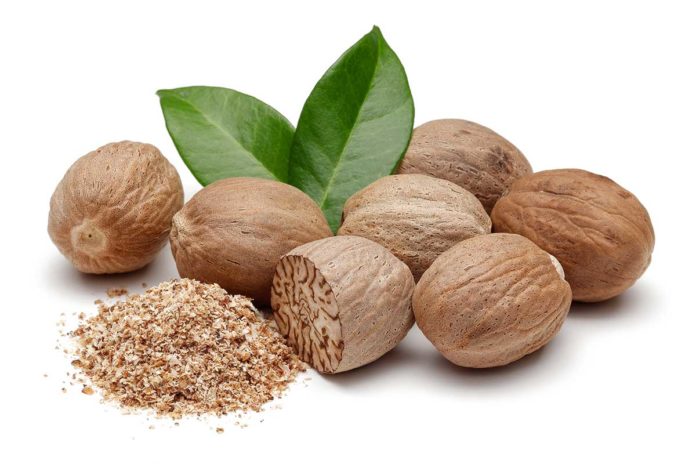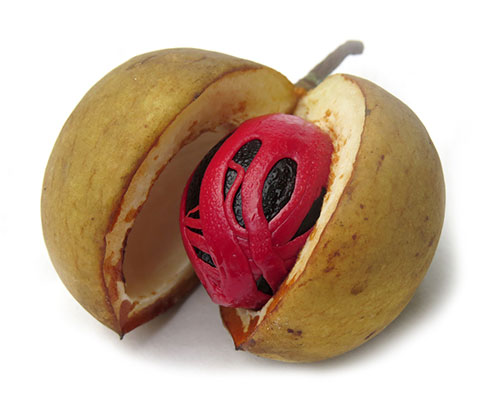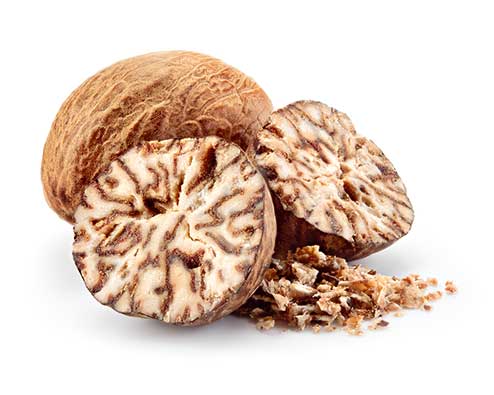Nutmeg is the seed of the Myristica fragrans tree, a dark-leaved evergreen tree. In addition to nutmeg, the tree is also known for producing another spice called mace – the reddish, lacy aril surrounding the seed. Outside of the two spices, essential oil, as well as nutmeg butter, is also extracted from the tree. While said to be native to native to the Moluccas (or Spice Islands) of Indonesia, the tree is now also cultivated in Malaysia, the Caribbean, and Southern India as well.

In order to produce nutmeg as we know it, the seeds are first harvested from the fruit. The seed is then dried in the sun over a period of six to eight weeks, allowing the nutmeg to separate from the hard seed coat. Once ready, the aril is separated from the seed and ground into a red-coloured spice we know as mace. The seed itself which is the nutmeg is either sold whole or ground up. Even the fruit covering (pericarp) is not wasted. It is used in the production of jam or is finely sliced, cooked with sugar, and crystallised to make a fragrant candy.
Although both spices come from the same seed, they do differ from each other. While they do share similar sensory qualities, nutmeg has a slightly milder, warmer, and slightly sweet flavour while mace has a slightly spicier, more delicate flavour akin to a mixture of pepper and cinnamon. Mace is also often preferred in light dishes for the bright orange, saffron-like hue it imparts. Nutmeg on the other hand is used to flavour baked goods, meats, vegetables, sauces, beverages, and more. It is also used as an ingredient in various spice blends, such as pumpkin pie spice and garam masala. In cooking, nutmeg can be used whole by grating directly into a recipe, pre-measured, or shaken from a canister of pre-ground nutmeg. If manually done, however, care should be taken as the intense flavour of nutmeg can easily overpower the dish.
Nutmeg is known to contain an impressive array of powerful compounds that may help prevent disease and promote overall health. It contains powerful antioxidants that neutralize free radicals, preventing cellular damage and keeping your free radical levels in check. Nutmeg is rich in anti-inflammatory compounds that may help reduce inflammation in your body and benefit those with inflammatory conditions. It has been shown to have antibacterial effects against potentially harmful strains of bacteria. Furthermore, while nutmeg is packed to the brim in nutrients and has several proven health benefits, it does have hallucinogenic properties and can be quite toxic if taken in high quantities. However, the dose required to produce such effects far exceeds any culinary use, so caution is not really required when used as a flavouring for foods. Caution, however, does need to be taken when storing nutmeg as it is essential to keep it out of reach from children and pets.



